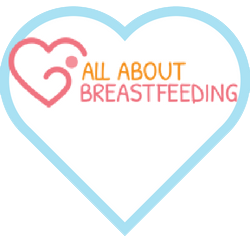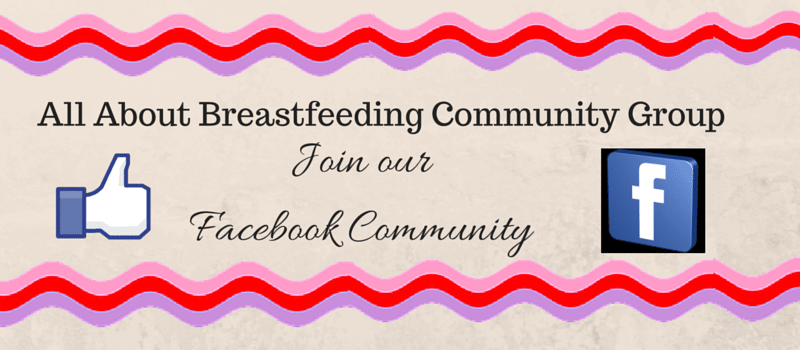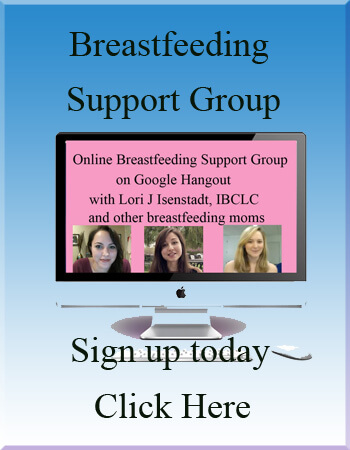Amy Neuhedel
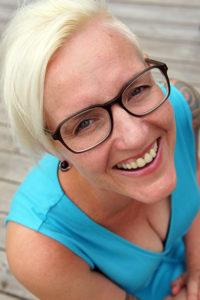 Her Story.
Her Story.
Introduction: Originally from New York, Amy Neuhedel (New-a-dell), has birthed her three children in Sweden where she has lived since 2000. Inspired by these births, Amy supports families worldwide as a birthing year coach, Hypnobirthing instructor and doula. She is the host of both the Calm Moms Collaboration on Facebook and The CORD podcast and she has proudly breastfed her little humans cumulatively for 91 months and counting – pretty much everywhere.
Background History: Amy is from Massapequa, Long Island, which is in New York. Which was a huge and wonderful surprise to Lori as she also grew up in Massapequa. We grew up about 10 minutes from each other! We had fun going down memory lane for a few minutes before carrying on with the rest of the show.
We talked about what the culture was like in the 1950s and 1960s for our mothers and the reasons they did not breastfeed, which were for similar reasons. Amy left Massapequa to go to college, then lived in New York City, until moving to Sweden in 2000.
Future Career Aspirations: Midwifery was always on the backburner for Amy as she has always been interested in Women’s Health Care. Her family thought she should be an accountant because her Dad was in banking and other family members worked on Wall Street. Amy says that math was her worst subject and while it did not make sense, she did study math. However, she quickly decided that was just not for her. She got her Master’s in Education, and traveled around, before coming back to New York. Amy continued to think about Midwifery but was not quite sure how this would pan out. We reminisced about reading Our Bodies, Ourselves and what a great book this was. Once back in NY ,she got her Masters, worked in some schools and she began looking into midwifery schools, however, she also met her future husband at this time. She met her Swedish husband in Brooklyn and talked about her romantic first date. She fell in love and soon moved to Sweden and worked as an English Teacher.
Midwifery in Sweden: Midwives work in hospitals. She would have had to go back to school for Nursing and this is not what she wanted to do at this point in her life. There is a link to the podcast she has done on this very issue.
Having Babies: Amy planned on doing a lot of research. She took out a lot of books and planned on educating herself. However, she had a surprisingly difficult pregnancy that made it difficult for her to do all the research. She also was not too concerned as she would be using a midwife. She has difficult pregnancies, suffering with hyperemesis gravidarum and needed to take medicine while she was pregnant. She thought that everything would be okay because she was using midwives. However, there is no continuity of care and the midwife that you have for your birth is not the same midwife that you saw during your prenatal visits. Things have changed quite a bit in the birthing field. Amy was able to choose the hospital she went to. However, right now, you do not even know which hospital that you will be going to.
Breastfeeding her first baby: Amy began to read about breastfeeding, when she began breastfeeding. She is so glad that breastfeeding went well as she could not find the time during her pregnancy because she was so sick. She was so happy that breastfeeding went rather easy because her pregnancy was tough, birth was tough, breastfeeding was “cake.” She remembers her husband saying to her: “this is really beautiful to see this working.” It was wonderful now to be able to read all about breastfeeding. With just one baby it was easy to sit and read. Amy feels that she was lucky during her hospital stay to get the help she needed with breastfeeding. Every time her baby needed to eat, she made sure she requested help/ She had some really great advice about laying down and breastfeeding which she feels was extremely helpful. Was breastfeeding awkward in the beginning? No, it felt so right for me. What was weird was on Day 3, when she came home and the in-laws were coming to visit, all of a sudden her breasts were so huge and everything with her body seemed weird. the hormones came flooding in. She remembers looking in the mirror and starting to cry and thinking that she knew nothing.
What was it that your husband did to help you with early breastfeeding? Amy’s answer: “Everything.” He did everything. He is awesome! She was recently in a study where they were trying to find out why woman are not meeting their breastfeeding goals. Breastfeeding rates are not great in Sweden, so there was a study that she participated in. Woman have said they wanted to breastfeeding longer, but they were not meeting these goals. They wanted to know why the rates are so low? She said that one of the most important things was “support from her husband.” Having support from your partner is so important to the breastfeeding relationship. Her brought her pitchers of water, he brought her food, he changed cloth diapers, he did all the laundry. He did everything for her. And then there were times when he just sat and cuddled with them on the couch. She remembers her husband saying: Hmmm, things have not really changed. He thought that he was set up for things to be really awful. That he would be getting no sleep and that there was going to be poo on the walls and that he would be getting no sleep. What and they were a cozy family. His enthusiasm and acceptance of the situation and willingness to be supportive. He was running around helping and he knew that this was not going to be forever, that things change all the time.What partners seem to want to do in helping moms is to feed the baby.
What they can really do is everything else and this frees mom up to breastfeed the baby. She can concentrate on taking care of herself and focus on breastfeeding.
Amy said something that I thought was funny and such a great line. She said she tells the parents she works with: “When people come over to see the baby, there is no free looks at the baby. People only get to come in if they are helpful. They only get to come in if they are helpful. And helpful is not holding the baby. Laundry is helpful. Dinner is helpful. Food is helpful. Dinner and doing the dishes – that is helpful.
Theories about why it is so hard for moms to ask for help? This belief that we are suppose to be able to do everything, There is this idea that multi-tasking is actually a positive quality. We talked about why this message is so popular and passed from one mom to the next. We need to start to reach out more to each other and tell each other that help is needed. We need to talk about what “help” and “support” looks like. If a partner is saying that they don’t know what they can do except for feed the baby, you have to wonder what this looks like before the baby is there also. People need to be splitting housework up before the baby is born. The current statistics say that woman are doing much, much, more at home. It definitely looks better in Sweden than in America, but women still tend to do more.
The results of this study that Amy participated in has not been completed yet. But they are compiling the research. Her response when she was asked what were the 3 things that made the difference in a women’s ability to successfully breastfeed, her answers were:
1. Support from the partners.
2. Support from the medical side. Amy felt that there was a lack of information and support from the health clinics. Amy feels that moms should definitely be able to make the choice to get support to achieve the goal of exclusive breastfeeding for more than 6 months. They should also be given the information that it is an option to go on longer 56 months, instead of hearing others ask if you still breastfeeding your 1 year old. The language used in communicating with mothers could be much better.
3. Advertisements. There are no posters of women breastfeeding of toddlers. There are no advertisements for the normality and where we do see it, moms get a lot of flack over it.
I mentioned that In the United States, we have poor maternity leave benefits and this is a huge barrier with moms breastfeeding longer than 3 months. Amy tells us how this is different where she lives. In Sweden, there is good news with regards to paid leave. They get over 400 days of paid leave. Approximately 280 days 0pd of pay and the rest is ground level enough to pay for every day expenses. You can split them up any way you want. You can use those days for up to 8 years. Partners automatically get off for 2 full weeks. Partners can split up the 400 days. There is always someone with the baby for at least the first full year. There is no daycare for babies under 1 year as the babies are cared for at home that first year.
Lori questions how the workplace adjusts to parents staying home during this time period? How does the work gets done? Amy explains how things work with her job. She trains someone else to do her job. They get the opportunity to work in her position and gain experience. When Amy comes back to work, this employee is now experienced and is likely to become gainfully employed elsewhere. This is a win-win for everyone involved.
Returning to work sooner than they want to is certainly a barrier to less breastfeeding rates. Why, even in countries where paid leave is so much better, are the breastfeeding rates still quite low? Amy acknowledged that what moms need the most is support to achieve breastfeeding. It comes back to more information in society about breastfeeding. There also needs to be more support for breastfeeding. Everyone who works with mothers needs to have extra education about breastfeeding. As a society, they may be breastfeeding positive and really believe it is the normal way to feed a baby, but not necessarily breastfeeding friendly. They know moms should, but they don’t know quite know how to help them and give them the support in the right way. Some moms end up feeling pressured about breastfeeding because they are not being given the right help.
We discuss how there seems to be a lack of knowledge with medical staff about the specific benefits of breastfeeding. They are giving formula too early as they panic if they feel babies are not getting enough food. There is a lack of support and knowledge about the fact that babies tummies are small. Moms need to be given more confidence. They need to be told that the volume of milk their babies need in the very early day or two is small and not rush to quickly to give formula to a new baby. There is more information out about the formula has like long impact on babies gut health. How can we support moms who are breastfeeding, get the breastmilk to breastfed babies and to save the supplementation for the babies that medically need it or for the moms that choose to formula feed.
Is formula as free flowing in Sweden as it is here in the United States. Well, there is no formula given free in the mail like we get here in the United States. However, formula is given out free on the maternity units and there are no lactation consultants on the units. There is no standard of care as far as staff in the hospitals being trained in lactation.
Breastfeeding experience: Amy tells us about her breastfeeding experiences. She was very open to see how long she breastfed each baby. With her first 2 babies, she purposefully weaned her babies as she was so sick during her pregnancies. Both babies seemed to be okay with it. First baby 2 years, 2 months, 2 days. Son, 2 1/2 years until she became pregnant. Breastfeeding her 3 year old now and she is fine with him to keep going with his boo-boos.
Funny story: When she was traveling, she did not want to have to deal with any negativity so rather than her kids ask to breastfeed, she came up with using Bee-Boo for nursing so that her kids asked for bee-boo. This worked out nicely. Her kids Tastes like strawberries and grapes. It is so great when her kids are able to put words to it.
What does nursing a toddler look like? Nursing a toddler is not like nursing a newborn. They stretch their feedings out from every couple of hours and throughout the night, to perhaps a few times a day. Perhaps at night to go to sleep and the first thing in the morning and sometimes during the day. Sometimes her 3 year old forgets about nursing the whole day, perhaps just a few sips the whole day that lasts less than 2 minutes. Perhaps nursing to sleep. She is in no rush to stop and her son will more than likely self-wean. When her son was nursing more frequently during the night, she thought about the possibility of weaning until she read a book about “the last drop.”
We talked about “the last drop.” Amy tells us that she is not ready to push weaning as she is not quite sure she is ready for “that last drop.”
We talked about the impact breastfeeding had on her husband and her relationship with her husband: Amy tells us that her husband is so impressed with her “womanness” and he appreciates everything about her. He loves that she can nourish their babies with her breastmilk. She feels that it is one of her super powers. He loves her and loves that she is breastfeeding, loves what she is giving to her babies. Things change and there will be the two of us again – we have forever. Amy does speak about the fact that it is easy to be creative and find ways to be with alone with her husband. Amy talks about the difference between expectations and intentions and how we view this can set us up for failure or success.
Amy tells us about her world of podcasting and her business: She started the podcast because she talks more than she writes. In college she was in a band and was a DJ and so she is quite comfortable in front of the microphone. The Cord Podcast is where she interviews people she finds very interesting. She loves just having a conversation with people where she interviews birth professionals and moms and people who she finds something interesting about their story. Started about a year ago. Took a break of the summer. She is currently on a break and will be picking it up again in 2017. She has a new microphone and is ready and raring to go with her office and new space.
She lives in the countryside, so she primarily works virtually with families as a hypnobirthing and pregnancy coach. and goes to clients houses and meets with them for pre and postnatal appointments and works with them as a birth doula. I have a virtual birthing year program that you can read more about on her site. Amy is also in the process of developing her courses to be virtual for people who cannot get to Stockholm. She works a lot with people who are English speaking families who live in Sweden and other countries and need help with birthing in a foreign country.
Parting words: At some point the breastfeeding relationship is going to change. However, meeting our children’s’ bodily needs and connecting with them is what it is all about and this is just going to change. We are going to keep providing things to meet their needs, whether it be food, or a hug, or a blanket. Breastfeeding helps us to connect with our children and it will evolve into meeting out children’s needs in other ways. We meet their needs during pregnancy and breastfeeding and beyond.
Links and Contact Information
http://www.amyneuhedel.com/birth-in-sweden/
Amy Neuhedel,
www.thecordpodcast.com
+46(0)704781374
@amyneuhedel on FB, IG, Twitter, Periscope
amy@amyneuhedel.com
Lori J. Isenstadt, IBCLC
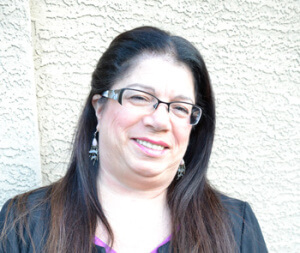 Lori Jill Isenstadt, IBCLC is a huge breastfeeding supporter. She has spent much of her adult life working in the maternal health field. Once she became turned on to birth and became a childbirth educator, there was no stopping her love of working with families during their childbearing years. Lori became a Birth doula and a Postpartum doula and soon became a lactation consultant. She has been helping moms and babies with breastfeeding for over 25 years. Lori founded her private practice, All About Breastfeeding where she meets with moms one on one to help solve their breastfeeding challenges. She is an international speaker, book author and the host of the popular itunes podcast, All About Breastfeeding, the place where the girls hang out. You can reach Lori by email at: aabreastfeeding@hotmail.com or contact her via her website: allaboutbreastfeeding.biz/contact
Lori Jill Isenstadt, IBCLC is a huge breastfeeding supporter. She has spent much of her adult life working in the maternal health field. Once she became turned on to birth and became a childbirth educator, there was no stopping her love of working with families during their childbearing years. Lori became a Birth doula and a Postpartum doula and soon became a lactation consultant. She has been helping moms and babies with breastfeeding for over 25 years. Lori founded her private practice, All About Breastfeeding where she meets with moms one on one to help solve their breastfeeding challenges. She is an international speaker, book author and the host of the popular itunes podcast, All About Breastfeeding, the place where the girls hang out. You can reach Lori by email at: aabreastfeeding@hotmail.com or contact her via her website: allaboutbreastfeeding.biz/contact

Listen Here
Submit a comment
your email address will not be published
